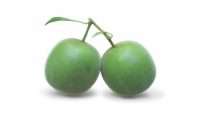Amano Custom Chocolate Mfg. has developed new chocolates sweetened with stevia and monk fruit.
The new chocolates are an effort to address a growing market for healthy alternatives to traditionally sweetened foods, the company says.
And, Amano already has several contract clients looking to integrate other natural sweeteners into their privately branded product lines, all of whom would be a perfect fit for this chocolate. 
“This is an exciting time for Amano,” says Art Pollard, Amano's founder. “As a contract manufacturer, Amano has been the secret arrow in the quiver of a number of brands. Now, we are excited to introduce even more options to broaden their lines of unique chocolate products.”
Amano's formulation is unique because unlike other stevia- and monk-fruit sweetened products, it does not include maltitol, a sweetener and sugar alternative that has been found to cause gastric distress in many consumers, the company says.
Amano's formulation also avoids much of the bitterness often associated with stevia-sweetened products.
In addition to developing chocolate sweetened with stevia or monk fruit, Amano also has the ability to create chocolate with nutraceutical ingredients such as antioxidants, caffeine, protein, vitamins and minerals.
Utilizing Amano's resources to source the finest cocoa beans from small farms and plantations around the world, Amano’s commercial clients can now choose from even more flavor and nutritional profiles to develop custom chocolates that will address different target markets and varying price points.
Amano Custom Chocolate Mfg. is a wholly owned subsidiary of Amano Artisan Chocolate -- America's most highly awarded chocolate maker. Since 2007, Amano has won more than 150 first place awards in competitions in Europe and the United States. To secure the best quality cocoa beans for its chocolate, Amano works directly with the farmers around the world and routinely even pays growers above “Fair Trade” prices for their cocoa. This practice not only ensures a better livelihood for farmers, but also helps to maintain cocoa as a sustainable crop.



